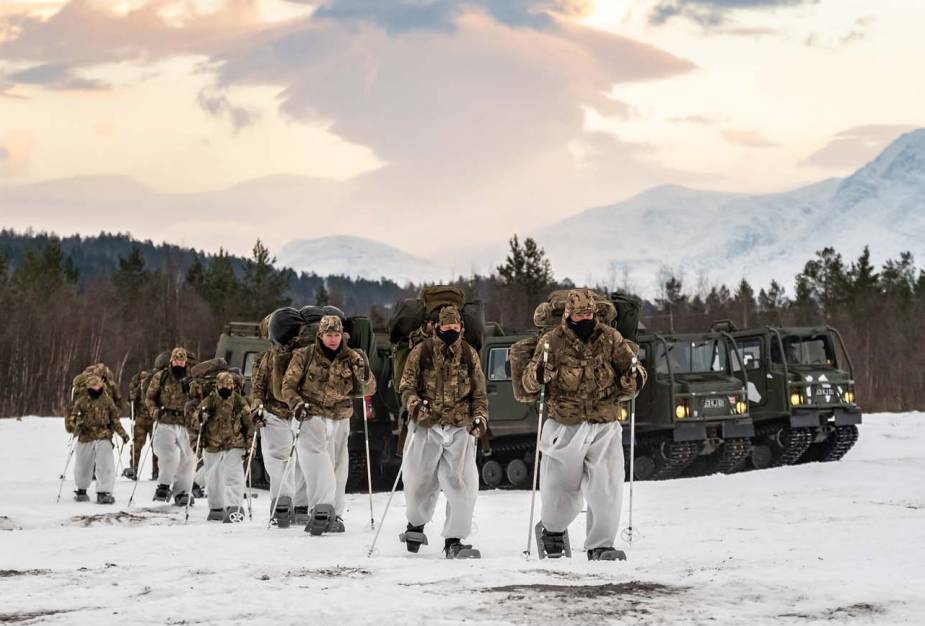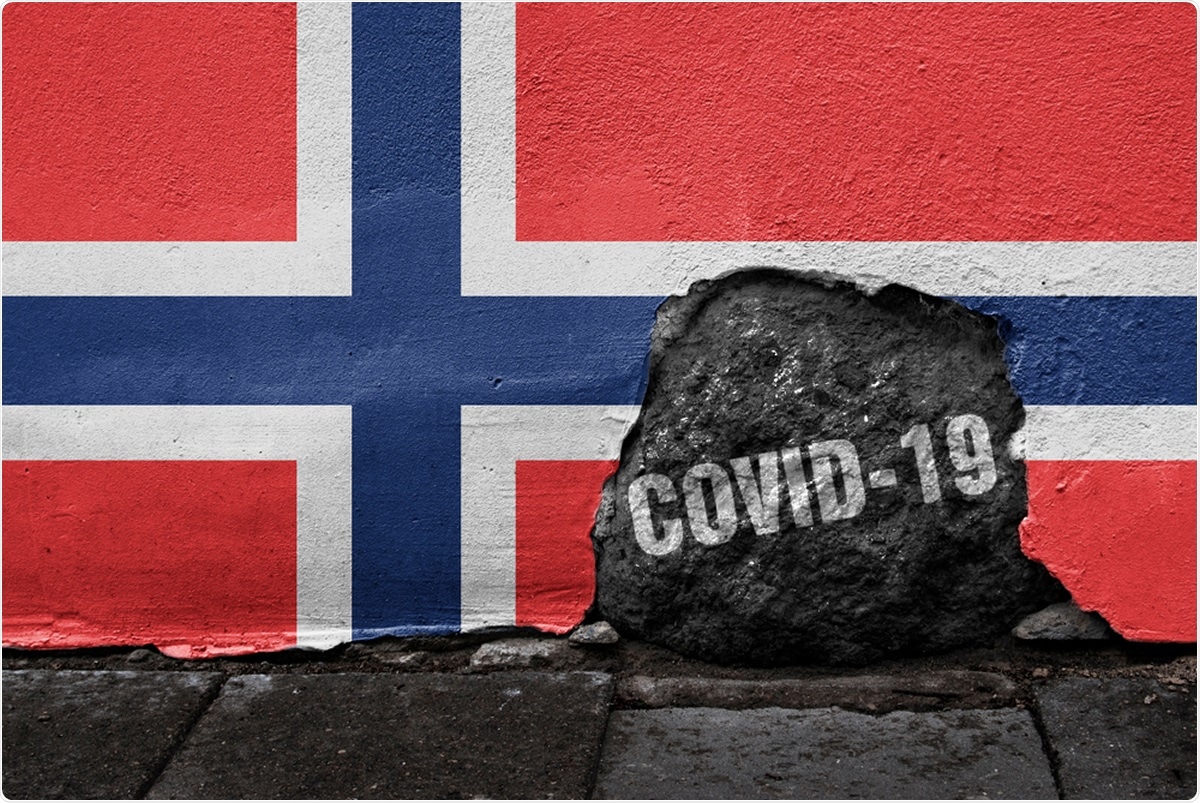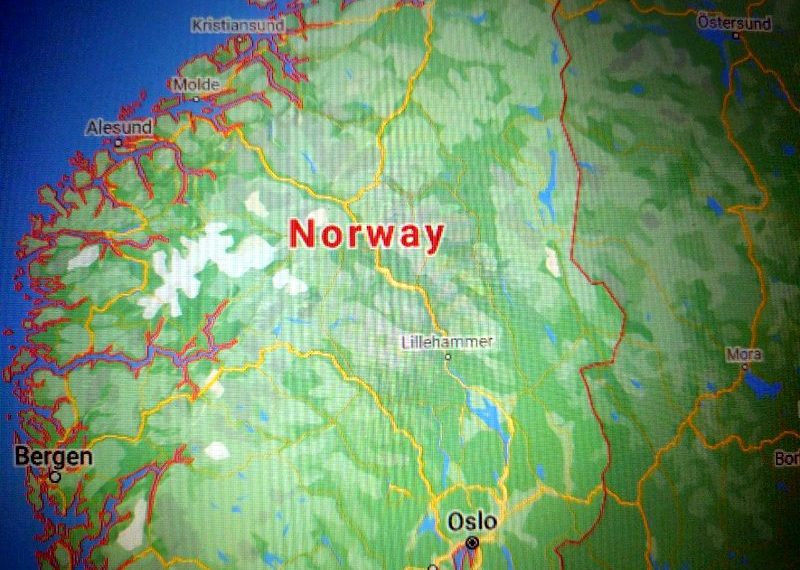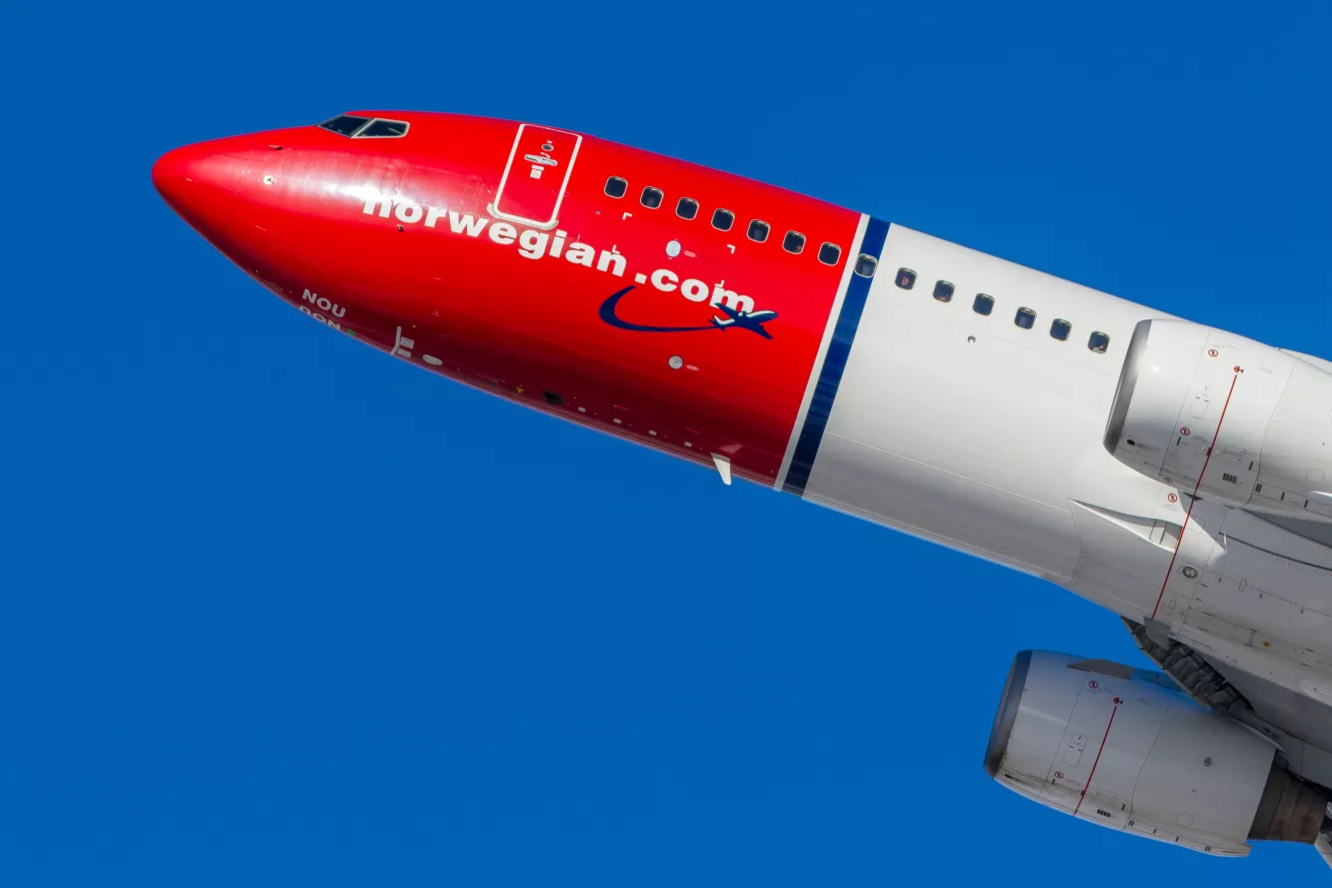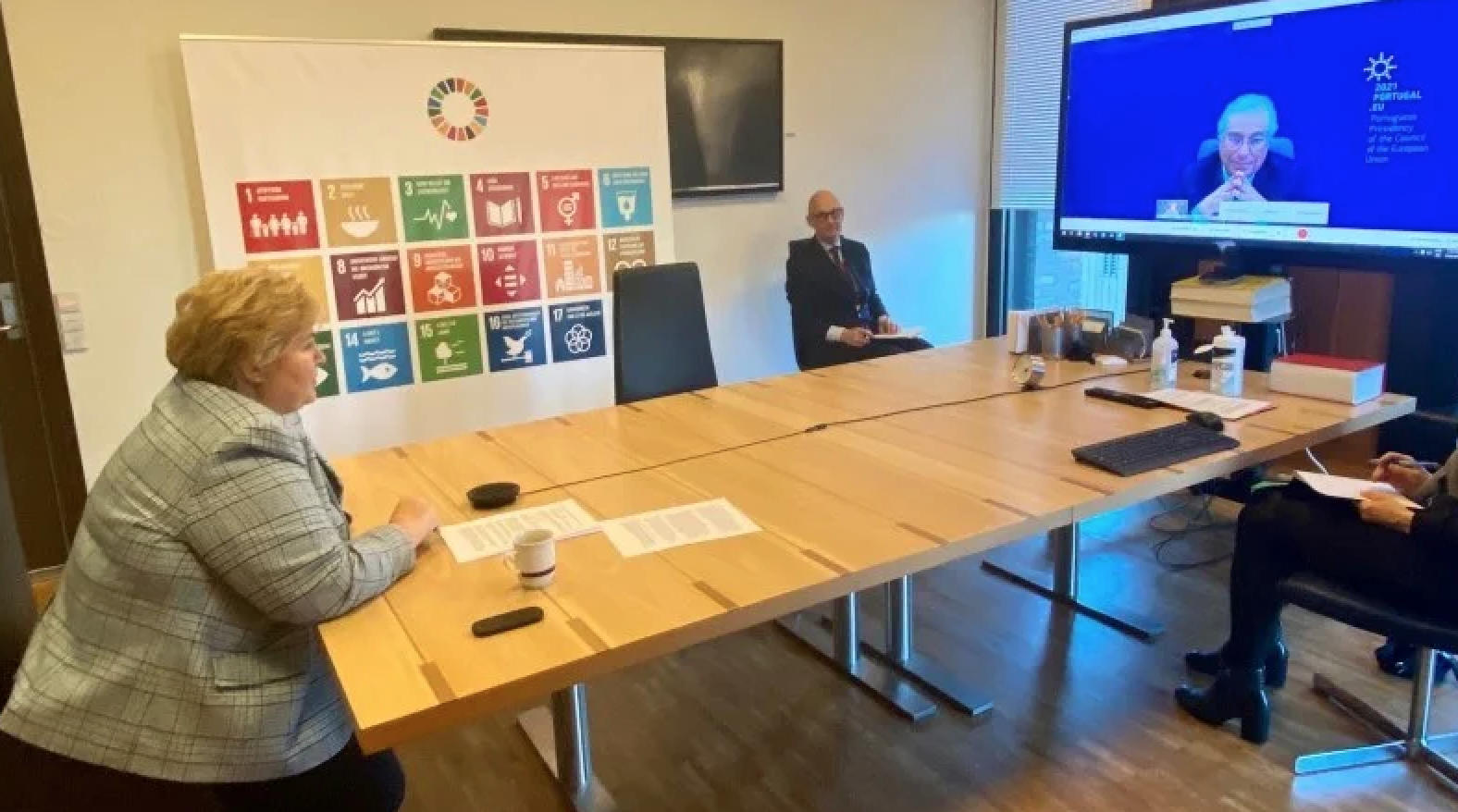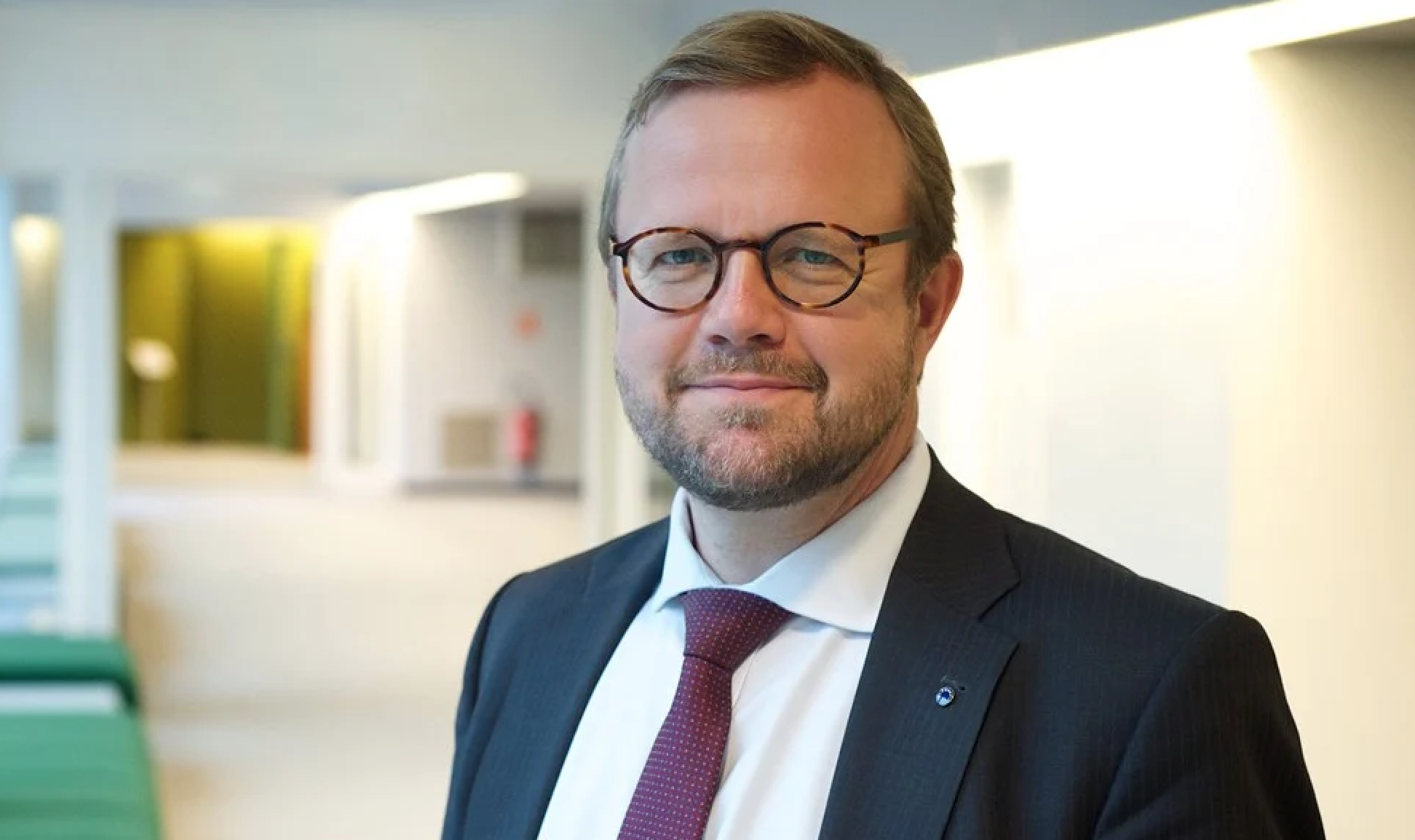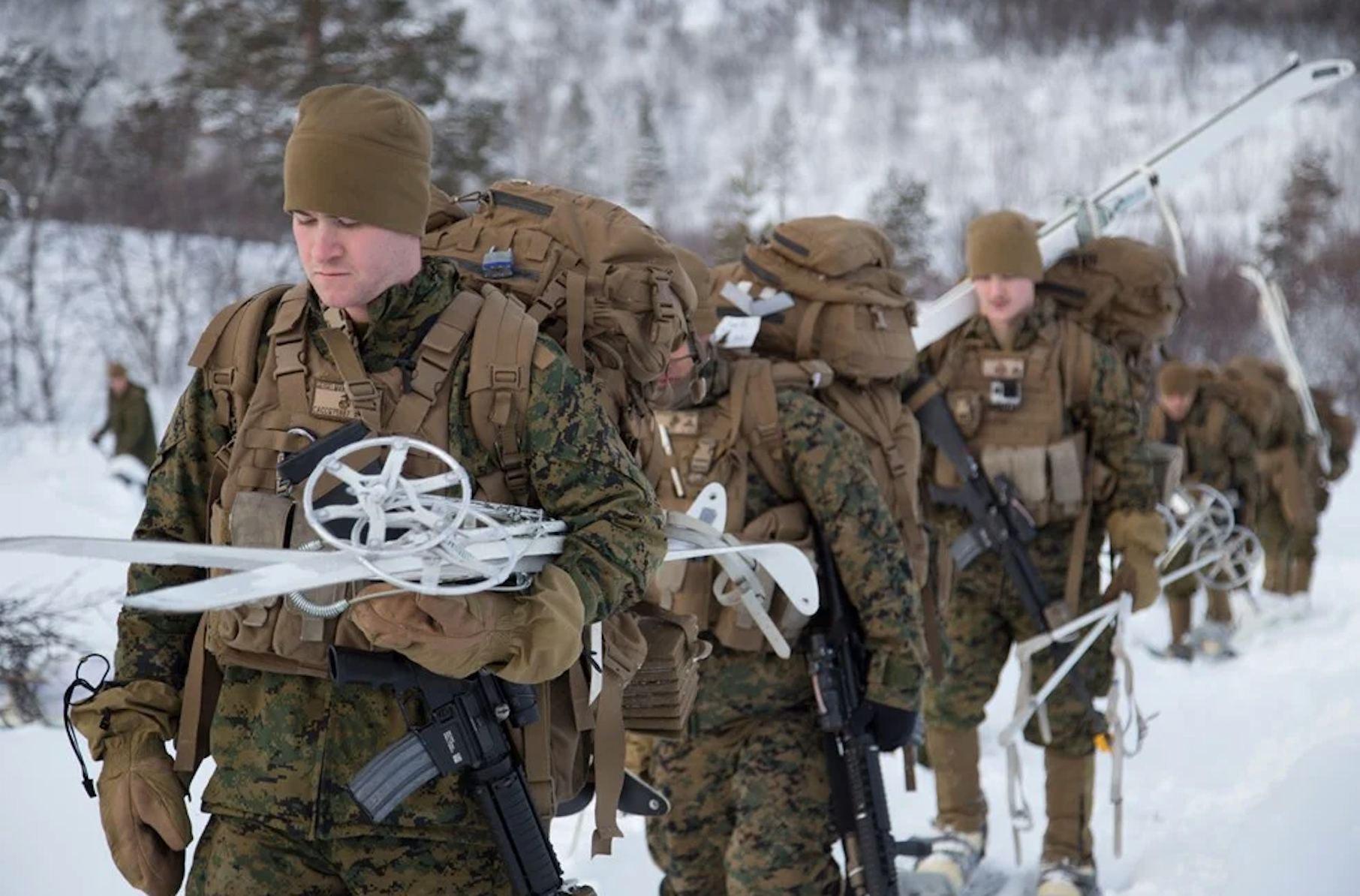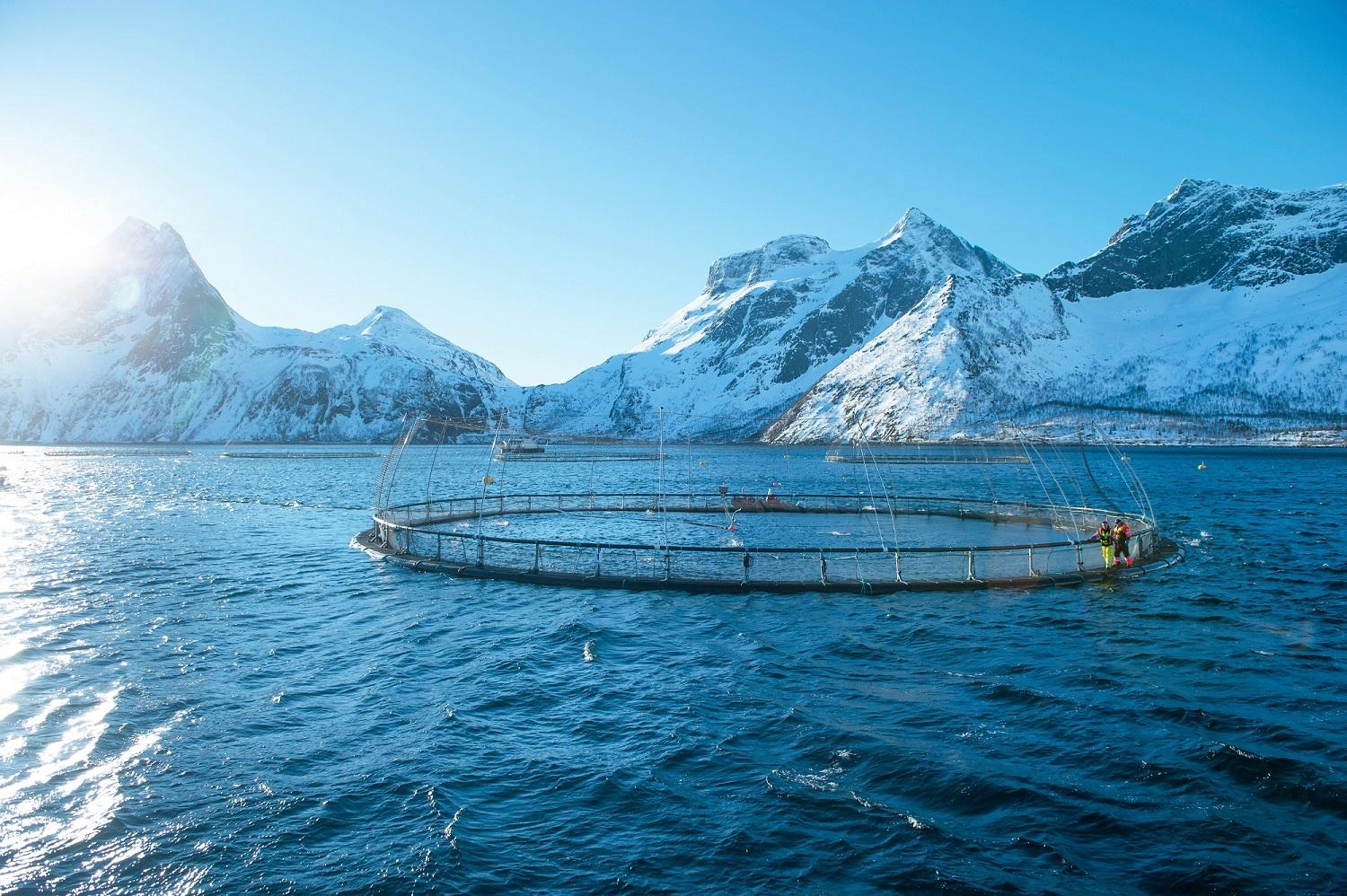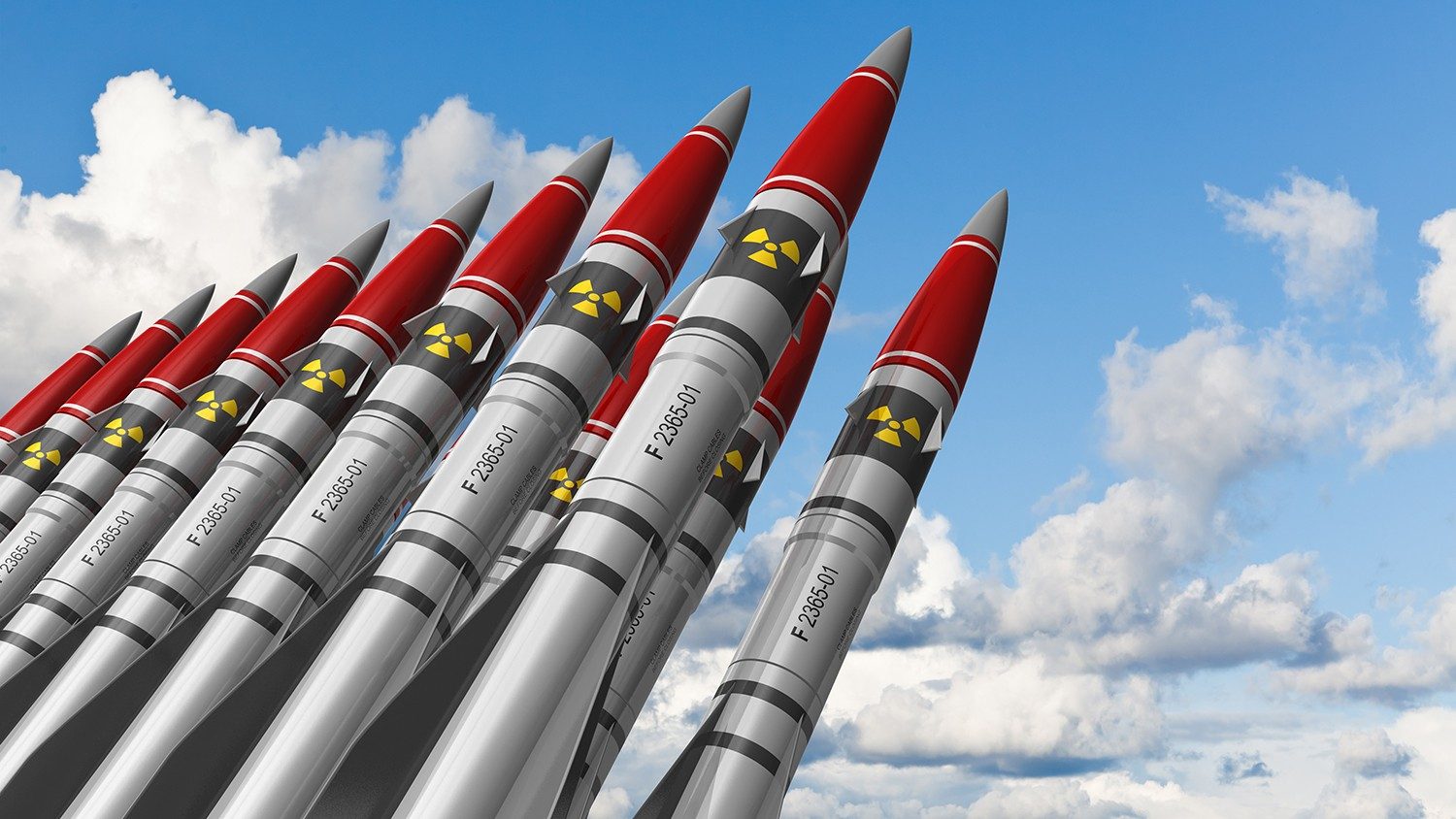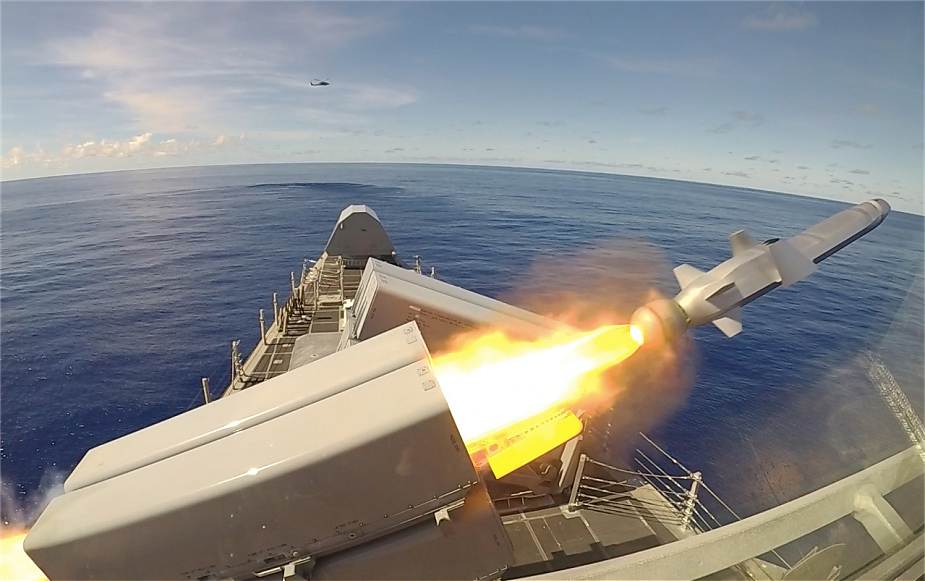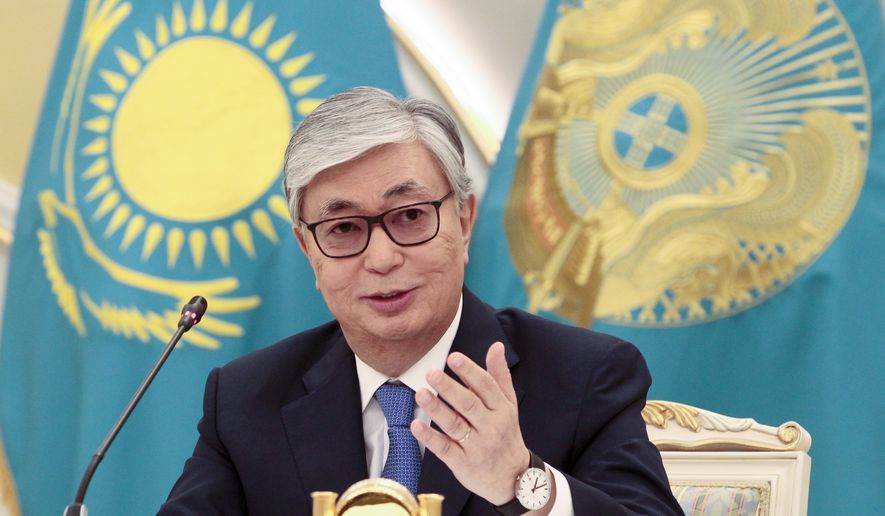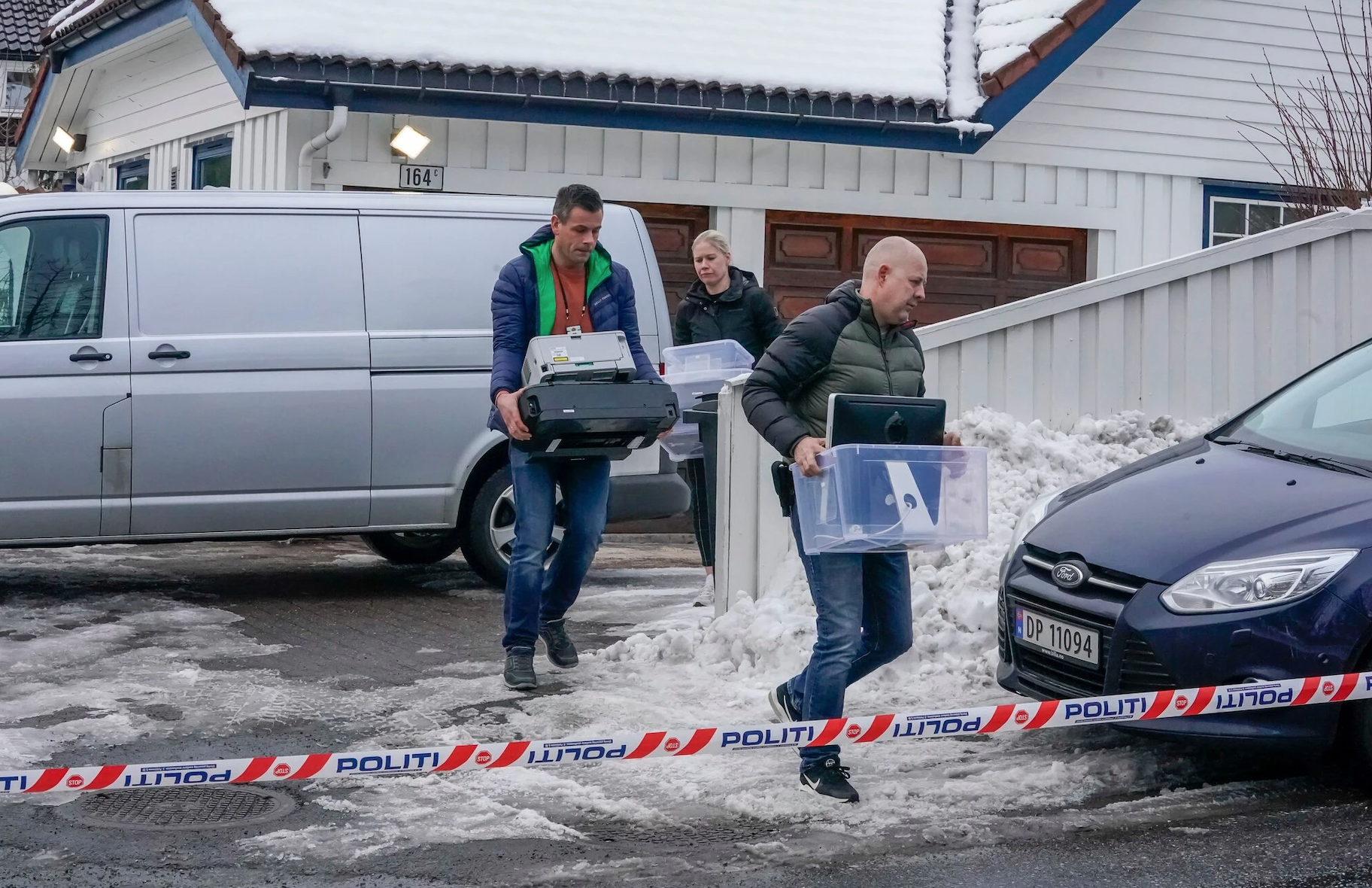“The Parliament of India, after a full debate and discussion, passed reformist legislation relating to the agricultural sector. These reforms give expanded market access and provided greater flexibility to farmers. They also pave the way for economically and ecologically sustainable farming.
A very small section of farmers in parts of India have some reservations about these reforms. Respecting the sentiments of the protestors, the Government of India has initiated a series of talks with their representatives. Union Ministers have been part of the negotiations, and eleven rounds of talks have already been held. The Government has even offered to keep the laws on hold, an offer iterated by no less than the Prime Minister of India.
Yet, it is unfortunate to see vested interest groups trying to enforce their agenda on these protests, and derail them. This was egregiously witnessed on January 26, India’s Republic Day. A cherished national commemoration, the anniversary of the inauguration of the Constitution of India, was besmirched, and violence and vandalism took place in the Indian capital.
Some of these vested interest groups have also tried to mobilise international support against India. Instigated by such fringe elements, Mahatma Gandhi statues have been desecrated in parts of the world. This is extremely disturbing for India and for civilised society everywhere.
Indian police forces have handled these protests with utmost restraint. It may be noted that hundreds of men and women serving in the police have been physically attacked, and in some cases stabbed and seriously wounded.
We would like to emphasise that these protests must be seen in the context of India’s democratic ethos and polity, and the efforts of the Government and the concerned farmer groups to resolve the impasse.
Before rushing to comment on such matters, we would urge that the facts be ascertained, and a proper understanding of the issues at hand be undertaken. The temptation of sensationalist social media hashtags and comments, especially when resorted to by celebrities and others, is neither accurate nor responsible. “
#IndiaTogether
#IndiaAgainstPropagandaNew Delhi
February 03, 2021
Royal Marines have deployed to the ice of the Arctic as the next generation of winter warriors are put through their paces in one of the world’s most extreme environments. All deployed marines have been through a rigorous quarantine period, with UK troops to conduct training in a bubble and in line with the Covid-19 guidelines of host nation, Norway.
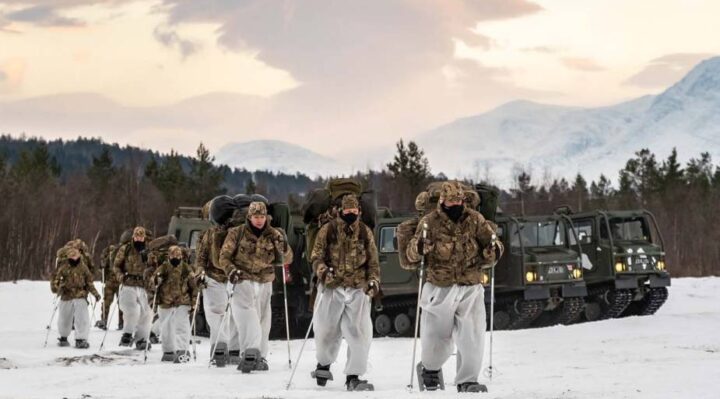
Scarcely four hours of daylight and temperatures well into the minus numbers have greeted hundreds of green berets – primarily from Arbroath-based 45 Commando but also from a range of specialist units from around 3 Commando Brigade – as they begin their 2021 winter deployment. Exercises with Norway, the United States, the Netherlands and Germany have been cancelled by the Norwegians due to Covid-19, but crucial training has resumed in the short-term for those who have been through quarantine.
Royal Marines 45 Commando’s Commanding Officer, Lieutenant Colonel Innes Catton, said: “45 Commando is currently deployed in Norway conducting essential training as the Lead Commando Unit. As Cold Weather Warfare specialists held at very high readiness, this training is vital to retaining capability to deploy anywhere in the world in the event of crisis and to support our NATO allies in the region. Stringent control measures and quarantine procedures are in place to protect the local population and our people in Norway, as well as our families upon return to the UK.”
Marines are put through their paces by instructors of the Royal Marines Mountain Leader Cadre – a hardy group of commandos highly-trained and experts in all things cold weather – to be ready to survive, move and fight in the freezing conditions.
First, those who are new to the Arctic must undergo a series of intensive trials to ensure they are able to survive – building shelters, living off the land and dealing with cold shock during the infamous ice breaking drills, which involves being plunged into a hole in the ice and climbing out of the water unassisted using ski poles. This brutal part of the training is designed to help participants recognise and reduce the risks of cold shock: a physical response to being immersed in cold water that can rapidly incapacitate and even kill.
Crossing a frozen lake or river can bring a tactical advantage but comes at significant risk, so ice breaking is about preparing for being suddenly dropped into bracing water. After rewarming from their dip through the ice, those on the survival course head into the wilderness to construct and inhabit survival shelters. Half the battle is managing the climate and the terrain. Snow storms can occur suddenly, so learning the basics of survival is key to operating in the Arctic conditions.
The Cold Weather Warfare Course has three phases – survival, mobility and warfare. This creates a well-rounded winter warrior, enabling the commandos to operate effectively in this unforgiving environment.
Deployed alongside 45 Commando are marines of 30 Commando Information Exploitation Group, Commando Logistic Regiment and Commando Helicopter Force, plus British Army troops from 24 Commando Royal Engineers and 29 Commando Royal Artillery.
A 2nd large group of marines has left for Norway for the annual winter training. The Norwegians insisted that the international Joint Arctic Training go ahead despite the challenging weather conditions.

Dutch high tech benefits from Norwegian space satellite
At the start of next year, satellite instrument SmallCAT will be tested in space for the first time. The Dutch high-tech instrument will travel on board the Norwegian satellite NORSAT-TD. The instrument facilitates laser communication, a new technology that makes it impossible to intercept communications. The Defence organisation is financially involved.
Dutch cabinet approves national military mobility plan
If military personnel need to relocate during a crisis, this must be done as quickly as possible via 3 so-called multimodal corridors. These are special routes for military locations, with a minimum risk of delays. This information can be found in the national military mobility plan that the ministerial council approved earlier this week.
The Netherlands to launch 1st military nanosatellite
In mid-March, the organisation Virgin Orbit will launch the Netherlands’ 1st military satellite Brik II in an orbit around the earth. Brik II is a nanosatellite, in size just a touch larger than a carton of milk. With the satellite, which was named after the Netherlands’ 1st military aircraft, the Netherlands is entering the space domain.
Norway is fining gay dating app Grindr 100 million krone (€13.4m) for failing to get consent from users before sharing their personal information with advertising companies, in breach of stringent European Union privacy rules.
The Norwegian data privacy watchdog said it had notified the company of its draft decision to issue a fine equal to 10% of its annual global revenue.
The Data Protection Authority took action following a complaint by the country’s Consumer Council alleging that personal data was shared unlawfully for marketing purposes.

The council said in a report last year that Grindr and five partner companies in the online ad industry collected personal data to use for targeted advertising in ways that violated the EU’s GDPR privacy rules.
The watchdog came to the preliminary conclusion that Grindr shared user data with a number of third parties without legal basis.
The data included GPS location, user profile information and even the fact that users were on Grindr, which could reveal their sexual orientation and therefore merit special protection.
“The Norwegian Data Protection Authority considers that this is a serious case,” said Bjorn Erik Thon, the authority’s director-general.
“Users were not able to exercise real and effective control over the sharing of their data.”
Grindr’s spokesman in Norway, Bjoern Richard Johansen, confirmed to broadcaster NRK that it had received a letter from regulators to notify it of the fine.
“Grindr is looking forward to entering into a dialogue with the Norwegian Data Protection Authority,” he told NRK, but said the company had no further comment.
Grindr has until February 15 to give feedback, which the watchdog will take into account for its final decision.
The privacy watchdog is still investigating five advertising technology companies that received data from Grindr, including one owned by Twitter called MoPub.
The national action level is back to yellow for lower and upper secondary schools with effect from Wednesday 20 January. Municipalities with a high infection rate should consider whether to maintain the red level locally.
‘Our goal has always been to ensure that children and young people can live as normally as possible. I’m therefore pleased that we can now introduce the yellow level nationally in lower and upper secondary schools. At the same time, it is important to emphasise that more stringent local measures may be necessary in areas with widespread infection,’ says Minister of Education and Integration Guri Melby from the Liberal Party.
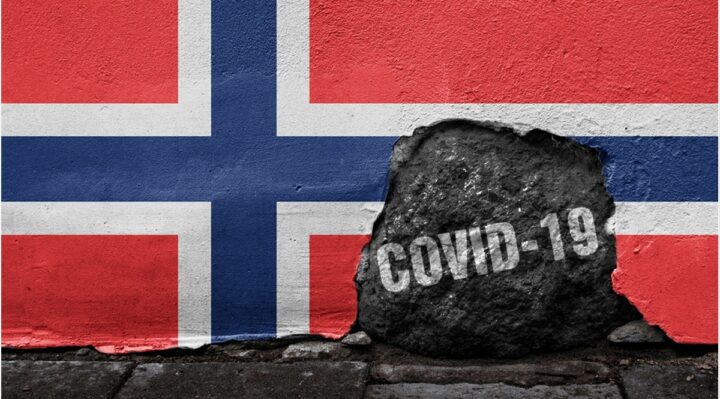
The red level was introduced for all lower and upper secondary schools in Norway with effect from 4 January, regardless of infection rates. This will be in force until 19 January. The Government is now announcing new measures from 20 January.
May take a few days to readjust
‘The yellow level is the level the schools are most familiar with, but I understand that it can be demanding to make the transition from red to yellow level. Some schools need time to plan this, and the municipalities must decide which level is right for them on the basis of the local infection situation. Nevertheless, I hope that it will make things easier for the schools now that they can operate with fewer restrictions in place,’ says Melby.
However, municipalities with a high infection rate should consider maintaining the red level in lower and upper secondary schools, and, if necessary, introducing the red level in kindergartens and primary schools as well.
The municipalities may keep the red level this week if they need to prepare for the transition to the yellow level or if they make a local decision to maintain the red level. The municipality’s infection control authorities decide which level to implement.
Municipalities are still not allowed to relax the rules in relation to the national level. This means that the municipalities cannot decide to introduce the green level.
Protecting children and young people as much as possible
‘When we decided to introduce the red level for all lower and upper secondary schools in Norway, we did so because we were concerned about the increased spread of infection throughout the country. The most recent figures could indicate that the infection curve is levelling out. That means that letting lower and upper secondary schools return to the yellow level nationally is the right thing to do,’ Melby says.
The overriding goal is the same for both the yellow and the red level, namely to limit the number of contacts for pupils and staff. At the yellow level, whole classes can be taught together in the same classroom. Teaching subjects where pupils from different classes mix is also permitted, but this should be limited as much as possible.
Pupils should sit at their regular places and/or be grouped according to which class they belong to. The staff can move between classes/cohorts, but should keep their distance whenever possible.
‘Children and young people with special needs must be able to attend school physically every day at both the red and the yellow level. This applies even if the school is closed. This means that someone will always be entitled to physically attend school,’ Melby emphasises.
Pupils under the age of 12 whose parents are essential workers shall also be able to attend school and kindergarten.
Infection control measures must not be more stringent than necessary
The local infection control authorities decide the action level for schools and kindergartens, but cannot lower the level when a yellow level is adopted nationally in accordance with the traffic light model. Infection control measures must be considered necessary and proportionate to the current infection control situation.
The Norwegian Institute of Public Health (FHI) has prepared the criteria for assessment, and some of the important criteria are the infection rate in the general population and in the age group in question, in addition to knowledge about whether the infection is transmitted in kindergartens or at schools.
Facts about infection control measures in schools and kindergartens
- From and including Wednesday 20 January, the national action level pursuant to the traffic light model will be lowered to the yellow level. The authorities are no longer advising against local sports and leisure activities for children and young people. However, matches, cups, competitions etc. must be postponed.
- The red level was introduced for all lower and upper secondary schools in Norway with effect from 4 January. Municipalities with high infection rates were also asked to consider implementing the red level for primary schools and kindergartens.
- From 20 January, the yellow level again applies to all schools and kindergartens at the national level. Municipalities with high infection rates must still consider whether to implement the red level for local schools and kindergartens.
- The municipalities may keep the red level this week if they need to prepare for the transition to the yellow level or if they make a local decision to maintain the red level.
- The Government’s goal is to keep the infection rate down and to protect children and young people as much as possible against invasive measures.
- The national action level for kindergartens and primary schools is still yellow, as it has been since the traffic light model was introduced.
- Children and young people with special needs must be able to attend school physically every day at both the red and the yellow level. This applies even if the school is closed.
The Security Council receives regular briefings on progress in the implementation of the peace agreement in Colombia, which was signed in 2016. Norway and Cuba were official guarantor countries in the peace process.
The briefing scheduled to take place on 21 January 2021 will be the first to be held since Norway took its seat in the Security Council. Carlos Ruíz Massieu, who is the UN Secretary-General’s Special Representative for Colombia and Head of the United Nations Verification Mission in Colombia, will brief the Security Council’s members based on the most recent Report of the Secretary-General. rapporten fra FNs generalsekretær.
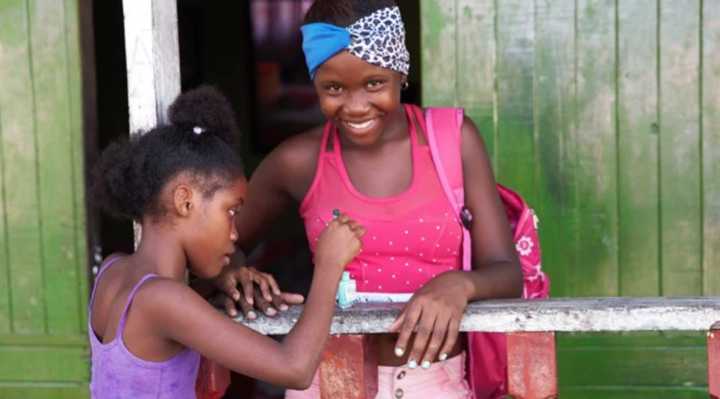
There is broad support for the peace agreement in the Security Council. Considerable progress has been made in the implementation of the agreement. This includes, in particular, the reintegration of former FARC-EP soldiers into Colombian society. The vast majority, more than 10 000 former guerrillas, are honouring their commitment to lay down their arms. They wish to pursue education, job opportunities and the possibility to create a future in a peaceful Colombia.
At the same time, some major tasks still need to be solved. The work of the Truth Commission and the Special Jurisdiction for Peace is meeting with resistance. The problem of access to land remains unresolved. Many people still feel that their security is not guaranteed. An alarming number of local community leaders, human rights defenders and former FARC-EP soldiers have been murdered.
Thus, the need for the continued support of the international community in the peace process in Colombia remains great. The Security Council plays a vital role in this, and Norway will seek to strengthen efforts to achieve full implementation of the peace agreement and to protect the institutions that have been established to monitor and ensure its implementation. The main focus here will be on women, peace and security, as well as the protection of former FARC-EP soldiers, local community leaders and human rights defenders.
Background
Norway and Cuba were official facilitators in the peace process between the Colombian Government and the former guerrilla group FARC-EP. The peace talks were launched in Oslo in 2012.
After the peace agreement was signed in 2016, the FARC laid down their arms. It has become a political party with representatives in the Colombian Congress. The UN Verification Mission was established in 2016 to verify security guarantees, a system for transitional justice and the reintegration of former FARC-EP soldiers in Colombia.
Read more about the peace process in Colombia here. The peace process in Colombia – regjeringen.no
Nobel Prize Committee registers Russia’s nominations to Cuban doctors
A petition from three Russian professors to grant the Nobel Peace Prize to Cuba’s Henry Reeve medical contingent was registered by the Norwegian Committee that grants the prize, Russian universities reported on Thursday.
According to these sources, Irina Kraeva, rector of the Moscow State Linguistic University, received the ceritification from the committee for the petition on grounds of the contingent’s contribution to the fight against the Covid-19 pandemic.
The same happened with Alexander Klimov, rector of the Russian University of Transport, and Alexander Panichev, rector of Emperor Alexander I St. Petersburg State Media University.

Local media also reported the reply from the Nobel Prize Committee to a petition by Dmitri Novikov, first vice president of the Committee on International Relations of the Duma (lower house) and vice president of the Communist Party of the Russian Federation.
Novikov is also the coordinator of the Cuba-Russia parliamentarian friendship group in the Duma.
On November 30, the petition sent by Russian university rector Andrei Alexandrov was confirmed.
After the petition made by Alexandrov, head of the ‘I.N. Ulianov’ University, due to the contribution of the brigade to the fight against the Covid-19 pandemic, the committee replied in a letter that ‘your nomination for the 2021 Nobel Peace Prize was duly registered.’
‘The Nobel Prize Committee expresses its gratitude for your intention of nominating that candidacy,’ it was written in the document sent to Alexandrov, head of the teaching center located in Chubashia province, the Cuba-Russia Friendship Society (CRFS) indicated.
The nominations sent by Oleg Abakumov, head of the CRFS in Saratov province, and Nikolai Dmitriev, head of that organization in Tula province, were also confirmed.
The petitions sent by the rector of the Altai State Pedagogical University, Irina Lazarenko, and the vice rector for teaching work and international activity of that institution, PhD Candidate Arkadi Kontev, were also received by the Norwegian committee.
The Norwegian data protection agency on Tuesday announced its intention to fine gay dating app Grindr €10 million for violations of Europe’s data protection code, the GDPR.
Campaigning groups including the Norwegian Consumer Council and Austrian activist Max Schrems-fronted noyb.eu filed complaints against Grindr in early 2020, accusing the app of illegally sharing user data with ad companies.
In a statement Tuesday, Norway’s data agency, known as Datatilsynet, largely upheld those complaints, announcing its intention to slap the dating app with a €10-million fine for collecting “invalid consent” to share data.
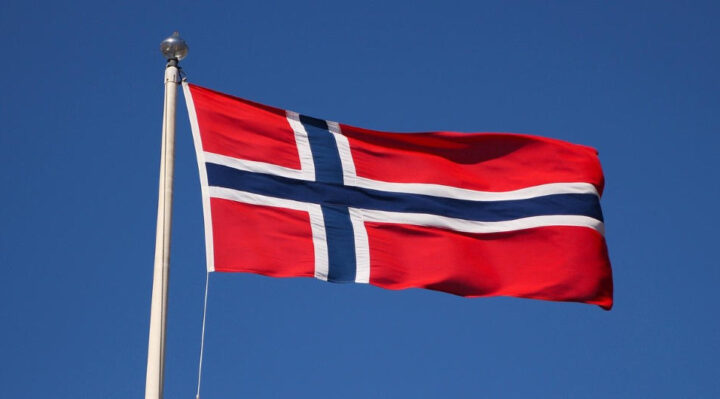
“Our preliminary conclusion is that Grindr needs consent to share these personal data and that Grindr’s consents were not valid. Additionally, we believe that the fact that someone is a Grindr user speaks to their sexual orientation, and therefore this constitutes special category data that merit particular protection,” said Bjørn Erik Thon, Datatilsynet’s director-general, in the statement.
He added that users were forced to accept Grindr’s privacy policy “in its entirety” to use the app, and they were not asked specifically if they wanted to consent to the sharing of their data with third parties, in violation of GDPR requirements for valid consent.
Finn Myrstad of the Norwegian Consumer Council described the proposed penalty as a “milestone.”
“This not only sets limits for Grindr but establishes strict legal requirements on a whole industry that profits from collecting and sharing information about our preferences, location, purchases, physical and mental health, sexual orientation, and political views,” Myrstad said in a statement.
The proposed fine, which Grindr has until February 15 to respond to, would represent around 10 percent of the company’s annual turnover according to Datatilsynet. Under the GDPR, companies can be fined up to 4 percent of their annual turnover or €20 million, whichever is higher.
Speaking to POLITICO by phone Tuesday morning, Datatilsynet’s Tobias Judin said that while not final, it was unlikely that there would be much change to the fine. “We feel we have a good understanding of the facts of the case, and we have already asked them questions as part of the process,” he said.
Norway was able to act directly against Grindr because it does not have a legal establishment in Europe. Under a European mechanism known as the one-stop-shop, the data regulator in the country where a company has its legal establishment must take the lead on investigations.
Datatilsynet is also investigating five of Grindr’s commercial partners that were also targeted by the complaints. Of those, one has been passed to a German regulator under the one-stop-shop, and another — a Twitter subsidiary — may be passed to the Irish regulator.
Grindr did not immediately respond to a request for comment.
Norwegian is pleased to announce that the government of Norway has decided to support and contribute to the airline’s funding of new capital, pending certain conditions. This move significantly increases Norwegian’s chances of working through the crisis caused by the pandemic and to position itself as a key player within Norwegian and European aviation.
“On behalf of everyone at Norwegian, I would like to sincerely thank the government for their support. Norwegian has been faced with a very challenging and demanding situation due to the pandemic, and the government’s support significantly increases our chances of raising new capital and getting us through the reconstruction process we are currently in. We still have a lot of work ahead of us, but a participation from the government underscores that we are heading in the right direction,” said Norwegian CEO, Jacob Schram.
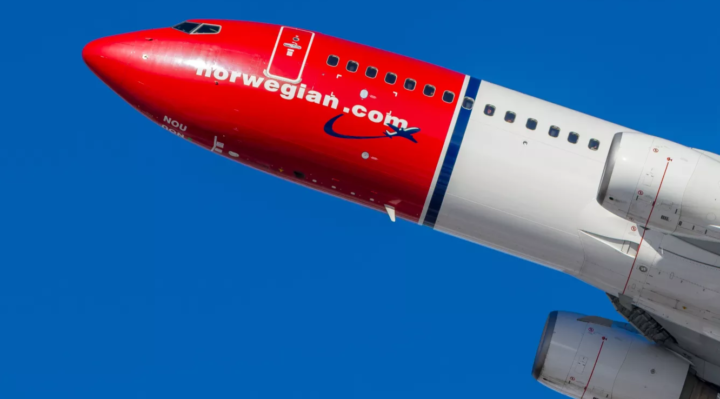
Norwegian entered into an Irish examinership process and a supplementary reconstruction negotiation in Norway late last year. On January 14, 2021, the airline presented a new business plan based on a simplified business structure with a focus on a European route network and discontinuing its long-haul operations, as well as significantly reducing its debt. The plan comprises a fleet of around 50 aircraft in operation this year, and to gradually increase to approximately 70 aircraft in 2022, pending demand and potential travel restrictions. The debt will be reduced to around NOK 20 billion, and the company will raise four to five billion NOK in new capital.
“With a new business plan, and a participation from the government, we are confident we can attract investors and get through the Examinership and reconstruction process. We have received extensive support from political parties, customers, colleagues, shareholders, and business partners, for which we are extremely grateful, especially during these challenging times. Furthermore, the government’s support will contribute to help securing jobs and maintain healthy competition within the aviation sector,” added Schram.
Meeting between Prime Minister Solberg and Portuguese Prime Minister António Costa
Prime Minister Solberg had a constructive discussion today with her Portuguese counterpart, Prime Minister António Costa, in connection with Portugal’s six-month Presidency of the Council of the European Union.
The priorities of the Presidency are, to a large extent, in line with those of Norway. In the area of health, Norway is cooperating closely with the EU in the fight against COVID-19. Portugal and Norway are both playing a leading role in the green transition in Europe, and Norway is an active partner of the EU in key areas such as climate change. Norway has good opportunities to work together with Portugal, particularly in relation to blue growth and other ocean issues, under the EEA and Norway Grants scheme.
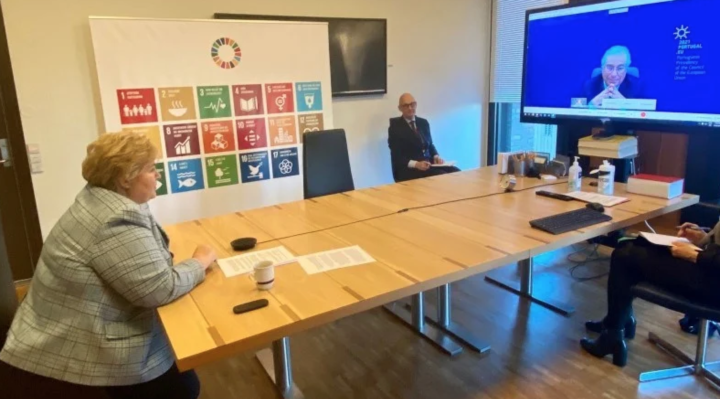
Portugal is an important partner in international ocean cooperation. Prime Minister Costa is a member of the High-level Panel for a Sustainable Ocean Economy, initiated and co-chaired by Prime Minister Solberg.
The two prime ministers agreed to involve more countries in the follow-up of issues on the High-level Panel’s agenda, particularly efforts to promote sustainable management of the oceans. As a step in this direction, the prime ministers agreed to invite interested countries to a meeting in June this year.
Minister of Foreign Affairs congratulates Bjørn Berge on role as new Council of Europe Deputy Secretary General
I congratulate Bjørn Berge on his election to the post of Deputy Secretary General of the Council of Europe. His extensive experience from the Norwegian Foreign Service and leading positions in the Council of Europe make him extremely well qualified for this position,’ said Minister of Foreign Affairs Ine Eriksen Søreide.
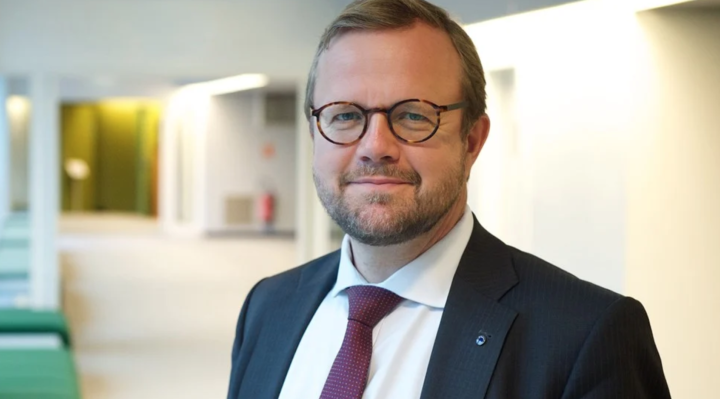
Today, the Parliamentary Assembly of the Council of Europe elected Bjørn Berge to the post of Deputy Secretary General for a five-year period. The Council of Europe is Europe’s leading organisation for the protection and promotion of human rights, democracy and rule of law principles.
‘Mr Berge’s election to the post of Deputy Secretary General is an acknowledgment of his expertise and experience, as well as of the insight he will bring to the organisation in the years ahead. Norway attaches great importance to the work of the Council of Europe, and I am pleased that Mr Berge will be able to contribute further to these efforts,’ said Ms Eriksen Søreide.
Mr Berge has worked in the Council of Europe since 2009. He held the position of Director of the Private Office of the Secretary General and Deputy Secretary General for many years. Since 2017, he has been the Director General and Secretary to the Committee of Ministers. Mr Berge also has wide-ranging experience from his work in the Norwegian Foreign Service and for the Office of the Prime Minister.
The Norwegain government cancels this year’s allied exercises in Troms
The Norwegian Government has decided to cancel this year’s cold weather exercises in Indre Troms in light of the COVID-situation in Norway.
-Norway, along with the rest of world, is faced with a challenging situation. The restrictions in place in Nordre-Follo and the municipalities surrounding it, are the most severe since the start of the Covid-pandemic. We must be one step ahead to try to avoid the spread of the mutated, and more contagious variant of the virus. We have weighed the arguments and our decision has been to cancel the planned allied exercise activity in Troms, says Minister of Defence, Frank Bakke-Jensen.
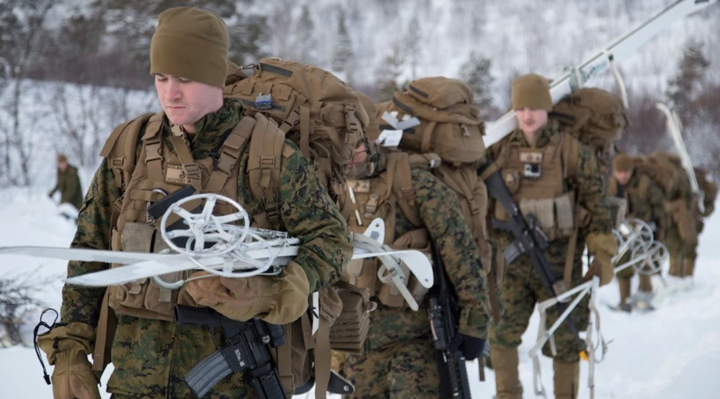
The decision entails cancelling both Excercise Rein I and Joint Viking, exercises that were to include allied participation from several countries in addition to Norwegian troops. There will be a halt in the arrival of new allied forces to Indre Troms. For those forces already in place, there will be a controlled and well-planned departure.
– How the troops who are already here and conducting cold weather training will return to their respective countries will be planned and organized in dialogue with our allies and the Norwegian Armed Forces. Their return will also be in accordance with measures that adhere to infection control. We are now planning how to execute this and we will have to outline the details of allied returns at a later time, says the Minister of Defence.
The Norwegian Armed Forces will accommodate tailored winter-training where possible and in adherence with proper infection prevention measures until the various departure dates.
This winter, approximately 3 400 soldiers were scheduled to conduct cold weather training in Indre Troms. Up until now, approximately 2 900 allied troops have arrived in Indre Troms to train. Of these 2 900, about 1000 are from the United States, short of a 1000 are from the United Kingdom, around 600 from the Netherlands and about 200 from Germany.
-Allied training and exercises in Norway during winter-conditions is important both for Norway and our allies, and are important contributions to our security within NATO. In order for allied forces to reinforce the defence of NATO’s northern part, they need to have the knowledge to operate there. For this reason, Norwegian and allied troops also need to train and exercise in this area in peacetime. This year’s cancellation comes in addition to last year’s major exercise, Cold Response 20, which was significantly reduced in size due to strict preventative Covid-19 measures. I want to thank all our allies who have shown great flexibility and understanding in a challenging situation. I also want to thank local authorities, the health services and the Norwegian Armed Forces. Everyone has done an incredible job to handle this demanding situation in the best possible way, says the Defence Minister.
The Norwegian Armed Forces has a large footprint in Indre Troms, and besides maintaining operational readiness their current main concern is to contribute to stop the spread of the mutated virus and to prevent it from making its way into the region. The Armed Forces have therefore introduced restrictive measures on personnel coming from red zones in South-Eastern Norway. This entails a halt in the drafting of new recruits from these municipalities for the time being, and commuter-travel to and from these zones is suspended for now. All scheduled leaves for Army personnel are halted until further notice. To maintain national readiness, there will however, within current strict Covid-19 preventative measures, still be conducted national training and exercise-activity in Indre Troms.
-During the pandemic, the Norwegian Armed Forces have had three main priorities: maintain operational readiness, prevent the spread of the virus and aid civilian authorities. These priorities remain, says Bakke-Jensen.
Norway is increasing its presence in the Democratic Republic of the Congo and is opening a new embassy in the capital Kinshasa. DRC will also be a new partner country in Norwegian development cooperation.
‘Opening a new embassy will strengthen cooperation between Norway and the Democratic Republic of the Congo. With its seat in the UN Security Council and a stronger presence in DRC, Norway is better equipped to help resolve major humanitarian challenges and enhance compliance with human rights obligations. In addition, we will continue to support stability, peace and reconciliation efforts in DRC and the surrounding region,’ said Minister of Foreign Affairs Ine Eriksen Søreide.

The embassy was officially opened last week when the Norwegian Ambassador presented his credentials to the President of DRC, Felix Tshisekedi. Since 2015, Norway has been represented by an embassy office which reports to the Norwegian Embassy in Angola. Norway’s first resident Ambassador to DRC is Jon-Åge Øyslebø.
The DRC was formally defined as a partner country for Norwegian development cooperation in the annual national budget for 2021. The aim of the partner country initiative is to concentrate development aid on fewer countries in order to achieve better results. In line with the white paper Partner Countries in Norway’s Development Policy, long-term strategies and a framework for cooperation are developed, based on the priorities and plans of both Norway and the respective partner countries. Norway has defined 16 other partner countries in addition to DRC.
‘DRC is facing wide-ranging, complex challenges in several areas. Norway is now sending a clear signal that we intend to be a long-term partner for DRC. Norway is strengthening its presence and making DRC a priority partner country for development aid. Increased food security, the fight against modern forms of slavery, and preventing and combating sexual violence will be important focus areas in our development cooperation,’ said Minister of International Development Dag-Inge Ulstein.
Norway contributes almost NOK 900 million annually to humanitarian, stabilisation and development efforts in DRC. About half of this is allocated through the International Climate and Forest Initiative administered by the Norwegian Ministry of Climate and Environment.
‘The Democratic Republic of the Congo has the world’s second largest tropical rainforest, which is five times the size of Norway’s land area. This enormous tropical forest plays a vital role in the global climate system. It also exerts a major influence on rainfall over much of Africa, which in turn is crucial for food production. Almost one billion people around the world live in or depend on tropical forests, which also contain approximately 80 % of all the world’s terrestrial animals and plants. Conservation of rainforests is therefore one of Norway’s key priorities. Having an embassy in DRC will make it far easier for us to follow up efforts in this area and strengthen dialogue with the authorities,’ said Minister of Climate and Environment Sveinung Rotevatn.
Norway also supports the work of civil society organisations, through the Office of the High Commissioner for Human Rights (OHCHR), among others.
Thailand has continued to import fish from Norway, with salmon at the top of the list, but while the pandemic seriously dented the global economy, Norwegian seafood exports recorded a 2% increase.
While the figure for growth represents the “second-highest value ever” worldwide, it is a 1% decline compared with the figure for 2019.
The Norwegian Seafood Council (NSC) yesterday reported its global exports increased to a total of 2.7 million tonnes, worth around 377 billion baht, last year.
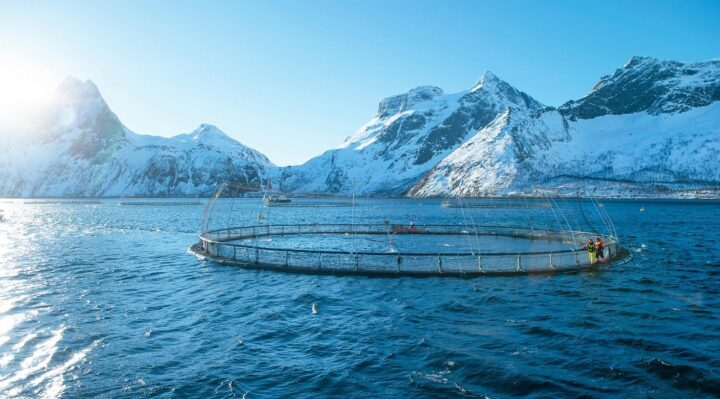
The volume is equal to 37 million meals daily or 25,000 meals per minute.
- Outgoing Labour Minister accepts migrant worker import proposal
- Thais, Indonesia seek deal
- Indonesia a bright spot for Thai exports
It only saw a 1% decline in volume of fresh salmonids imported to Thailand in 2020, totalling 16,771 tonnes, worth 3.65 billion baht.
“Norwegian salmon remains Thai people’s favourite along with a new trend with a shift towards more home-cooking and delivery,” said Asbjorn Warvik Rortveit, NSC’s Southeast Asia regional director.
NSC’s total performance in the Thai market, including both fresh and frozen products, was slightly down last year, with salmon decreasing by 10% to 14,083 tonnes, fjord trout decreasing by 12% to 4,903 tonnes and mackerel decreasing by 1% to 8,873 tonnes, compared with those in 2019.
Though the seafood trends have shifted from what was foreseen in early 2020, the new normal measures have paved the way for Norwegian seafood to thrive during the pandemic, said the NSC.
With the lockdown resulting in loss of important sales channel in restaurants and hotels and logistics becoming more complicated, sales of Norwegian salmon and other seafoods were largely moved to grocery chains, delivery and takeaway services.
“The Norwegian seafood industry has managed to defy the biggest challenges amid uncertainties and instabilities around the world,” said Mr Rortveit.
“We have been able to maintain a strong position in the Thai market by working closely with our business partners.”
NSC is a public company owned by the Ministry of Trade, Industry and Fisheries. It works together with the Norwegian fisheries and aquaculture industry to develop markets for Norwegian seafood, representing the country’s seafood exporters and the seafood industry.
The trademark Seafood from Norway is a symbol of origin for Norwegian seafood caught or raised in the cold clear waters of the Scandinavian country.
Polish oil and gas companies obtain new production licenses in Norway
Poland’s oil and gas giant PGNiG obtained four production licences on the Norwegian continental shelf, while Poland’s second biggest fuel company Lotos gained three during the annual licensing round held by the Norwegian Ministry of Petroleum and Energy.
The Norwegian Ministry of Petroleum and Energy offered 61 production licenses to 30 companies on the Norwegian continental shelf in the Award in Pre-Defined Areas 2020 (APA 2020).

The 61 production licenses were located in the North Sea (34), the Norwegian Sea (24) and the Barents Sea (3).
PGNiG Upstream Norway, owned by Poland’s PGNiG gas giant, was been granted PL146B and PL1088 licences with 22.2-percent stakes in each of them. The remaining 77.8-percent stakes are owned by Aker BP.
PGNiG Upstream Norway also purchased a 30-percent stake in the PL1123 licence in the King Lear field in the North Sea. A 30-percent stake was given to Aker BP, and a 40-percent stake to ConocoPhillips Scandinavia, which will be the field’s operator. PGNiG Upstream Norway will also have an 11.9175-percent stake near the Skarv field in the Norwegian sea.
Before the new purchases, PGNiG had had stakes in 32 licences estimated at 200 million barrels of oil equivalent (BOE). According to PGNiG’s estimates, its gas output in the Norwegian shelf is likely to reach 0.9 billion cubic metres in 2021.
Lotos Exploration will receive a 50-percent stake in the PL1098 licence, a 30-percent stake in the PL1099 and a 20-percent stake in the PL1091 licence.
Up until the last round, Lotos had had 29 licences on the Norwegian shelf.
Religions for Peace Norway urges gvt to sign Treaty prohibiting nuclear weapons
Religions for Peace Norway has urged the Norwegian Government to join the UN Treaty on the Prohibition of Nuclear Weapons (TPNW), which seeks for the first time to establish a comprehensive ban on the development, testing, production, stockpiling, stationing, transfer, use and threat of use of nuclear weapons, as well as obligations for victim assistance and environmental remediation. The Treaty was adopted on July 7 2017 and will come into force on 22 January. Until now, it has been ratified by 51 Countries. Norway, however, has consistently opposed signing the TPNW, arguing that it would come into conflict with its membership in NATO.
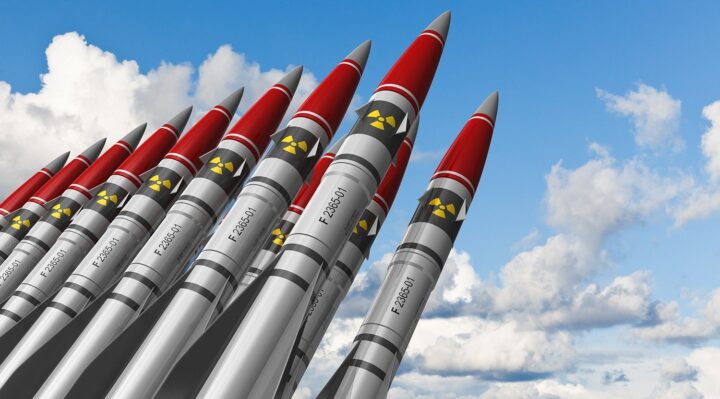
Regret that Norway has not joined the Treaty
According to the World Council of Churches website, the Norwegian leaders of Religions for Peace have expressed “deep regret” that the Country has not joined the Treaty , reminding that: “The threat of a catastrophic mass eradication using nuclear weapons was one of the most important reasons for more than 400 religious leaders to be brought together in Kyoto in Japan in 1970 for the first World Conference of Religions for Peace”.
“As Norwegian representatives of Religions for Peace, we are deeply convinced that the existence and use of nuclear weapons is fundamentally in conflict with our religious values and ethical principles,” the appeal stresses. “In the name of humanity, we cannot accept the use of nuclear weapons”.
Unacceptable support for the use of nuclear weapons
According to the Norwegian peace leaders, as long as nuclear weapons exist, there is a danger that they may be used. They therefore claim that “Norwegian current support for the use of nuclear weapons that violate human dignity is unacceptable,” stressing there is “no decisive conflict between international law, moral principles, Norway’s membership in NATO, and the ratification of the Treaty on the Prohibition of Nuclear Weapons”.
Noting that the annual expenses used on nuclear weapons globally are estimated to at least 100 billion US dollars, the appeal also points out that: “More of our resources should be used for human development and protection of the creation, and not for investing in weapons that can eradicate the world’s human population”.
Norway has become the first country in the world where EV sales accounted for over half of all new vehicle sales.
According to the Opplysningsradet for Veitrafikken (OFV, “Information Council for Road Traffic”), EV sales officially accounted for 54.3 per cent of the new-car market there in 2020. Incredibly, the number for 2019 wasn’t too far off, at 42.4 percent.
The numbers don’t appear to stop at 50 per cent either; the best month for EV sales was December, at 66.7 per cent. OFV said the numbers were boosted by the arrival of new models.

Electric vehicles took four of the top spots for vehicle sales, starting with the Audi e-tron, followed by the Tesla Model 3, the Volkswagen ID.3, and the Nissan Leaf. While the fifth vehicle on the list was the Volkswagen Golf, it’s unclear whether or not the electric version of the vehicle was the best-selling, as the list does not state the engine type.
Despite Norway being the largest producer of oil in Western Europe, heavy subsidies have allowed for significant headway in electric mobility.
Electricity is primarily produced from hydroelectric dams in Norway, which means its goal of all new cars there being “zero emission” by 2025 could become a reality. Other countries around the world still have the problem of their electricity coming from dirty sources such as coal, which disconnects the designation of “zero emissions” from the truth.
Romania approves the purchase of NSM Naval Strike anti-ship Missile systems
The value of the contract for the acquisition of the Naval Strike Missile (NSM) by Romania is estimated at $286 million and will include four ground-based launch vehicles and associated command, control, and support equipment, with delivery by 2024.
In October 2020, the U.S. State Department has made a determination approving a possible Foreign Military Sale to the Government of Romania of Naval Strike Missile (NSM) Coastal Defense Systems (CDS) and related equipment.
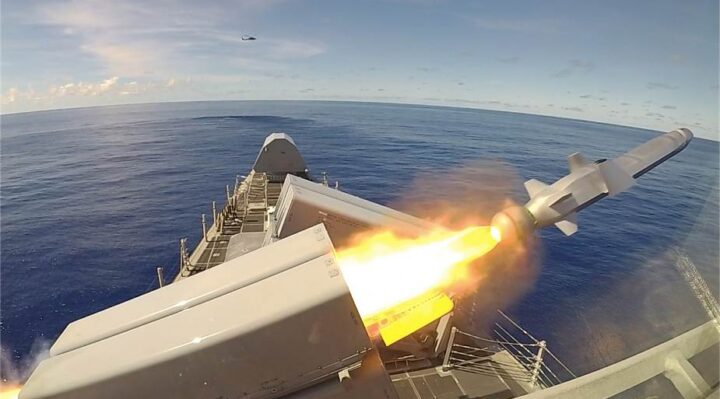
The Government of Romania had requested to buy two (2) Coastal Defense Systems (CDS) consisting of: up to ten (10) Link-16 Multifunctional Information Distribution System – Joint Tactical Radio Systems (MIDS-JTRS). Also included are two Coastal Defense System Fire Distribution Centers; four Mobile Launch Vehicles; Transport Loading Vehicles; Naval Strike Missiles; non-operational Inert Handling/Loading Missile (IHM) to support missile handling and loading/unloading; training missile and equipment spares; associated containers; training and training equipment; publications and technical documentation; spares parts; loading and mobile maintenance support; U.S. Government and contractor engineering, technical, and logistics support services; and other related elements of logistical and program support.
The Naval Strike Missile (NSM) is an anti-ship and land-attack missile developed by the Norwegian company Kongsberg Defence & Aerospace (KDA) in collaboration with the American, company Lockheed Martin. The missile can be launched from land and naval platforms.
The NSM missile is able to fly over and around landmasses, travel in sea skim mode, and then make random maneuvers in the terminal phase, making it harder to stop by enemy countermeasures. It has a length of 3.96 m and carries an HE (High Explosive) fragmentation warhead with a maximum payload of 125 kg. It has a maximum firing range of 185 km.
Amdocs has signed a multi-year agreement with ICE Norway for the deployment of its ActixOne and TechInsights software solutions to support ICE’s network expansion and digital transformation initiatives.
ICE has a range of mobile service offerings and is in the midst of a significant network buildout programme for its existing and newly acquired 5G spectrum. Amdocs systems will help automate activities for planning, building, launching, monitoring and optimising radio access network sites. Additionally, Amdocs’ analytics-driven platform will aid in predicting network issues and prioritising remediation actions based on key business parameters.

“By continuing to disrupt and improve the Norwegian mobile market successfully, and offer expanded coverage and high-performance services, we can ensure our customers great value for money,” said Jan-Erik Hvidsten, CTIO, ICE Norway. “With Amdocs’ advanced technology and deep experience in network automation and analytics, we plan to aggressively grow our network and market share with more efficiency and intelligence than our competitors.”
Service providers across the world continue to have fragmented network deployment and operations processes, often supported by ad-hoc tools, scripts and manual steps. Yet, in order to address market demands, operators are executing a range of digitalisation strategies to implement new software systems and methodologies that significantly automate and streamline the network rollout and optimisation activities across multiple departments and teams.
“Amdocs is changing the speed and economics of RAN deployment with our intelligent automation and data-driven network insights capabilities,” said Anthony Goonetilleke, group president of media, network and technology at Amdocs. “We are pleased to be partnering with ICE Norway to accelerate their growth through network deployment and optimisation solutions that drive towards a zero-touch approach, provide complete end-to-end visibility and control, and accelerate automation and integration for the new 5G and cloud networks era.”
Kazakh President Kassym-Jomart Tokayev proposed further political modernization and outlined his 2021 priorities for the Kazakh Parliament and government at the Jan. 15 opening of the first session of the Parliament of the seventh convocation.
At the end of the last parliamentary elections, two Kazakh political parties were just a few percent away from earning seats in the Majilis (lower house of the Parliament). The President proposed to reduce the mandatory vote threshold from seven to five percent for more political parties to be able to enter the Majilis and, thereby, increase the political competition.
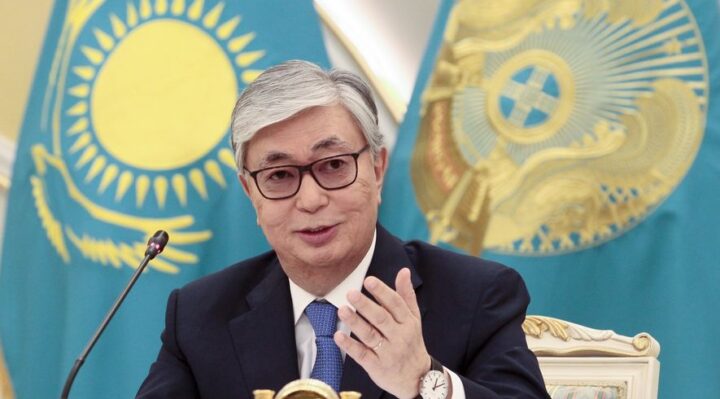
“The time has come to make such a decision. Such a rule will stimulate legally registered parties to participate in the next elections,” he said. “This initiative will expand representation, and allow us to take into account the opinion of the widest possible layers of the population when developing state policy.”
In addition to that, he proposed to return the option “none of the above” to the ballots because “the concept of alternative views and voting against all should be considered normal in Kazakhstan.”
The President informed the citizenry about the upcoming akim (governor) elections in rural districts in Kazakhstan. These elections should “strengthen the system of local self-government at the grassroots level,” he stressed.
The Jan. 10 Kazakh parliamentary elections coincided with Kazakhstan’s 30th anniversary year of independence. In this historical year, Tokayev called on the deputies to focus their efforts on building “an effective state and a just society.”
“The main priority is to improve the quality of life and increase the well-being of citizens. The people are waiting for a full return and concrete results from the socio-economic programs we have implemented,” he said.
Tokayev instructed the Parliament to make every effort to develop the rule of law and strengthen government approval.
“The essence of reforms in this area lies in the reasonable decentralization of the system, modernization of the state apparatus, optimization of the quasi-public sector, and digitization of all procedures. Thus, the state apparatus will become as compact, open, and efficient as possible, and the decision-making process will become flexible and transparent. Socio-economic development is impossible without proper protection of the rights of citizens,” Tokayev said.
The President also stressed the importance of modernizing social policies, education, healthcare, and pension systems. In addition to this, Tokayev instructed the Kazakh government to prioritize the progressive growth of the national economy, continue countercyclical macroeconomic policies to support economic activity, as well as to focus on creating favorable conditions for doing business.
“Given the dynamic transformation of the labor market, it is necessary to stimulate the flow of labor from low-productivity to more productive sectors of the economy. As I said earlier, the industry of our country should be flexible and adaptable to change,” said Tokayev.
Another priority will be the infrastructure connecting regions, cities, districts, and villages. According to him, the government will modernize more than 3,500 villages and repair roads between villages and all national highways.
Tokayev concluded that the Parliament is the locus of all activities aimed at protecting the interests of the country. He called on the deputies to make decisions with a sense of the highest responsibility and to always remember that the Kazakh people expect positive changes.
World first as electric cars outsell internal combustion counterparts in Norway
OSLO, NORWAY – The sale of electric cars in Norway overtook those powered by petrol, diesel and hybrid engines last year, with Volkswagen replacing Tesla as the top battery-vehicle producer, new data showed on Tuesday.
So-called battery electric vehicles (BEV) made up 54.3 percent of all new cars sold in the Nordic country in 2020, a global record, up from 42.4 percent in 2019 and from a mere 1% of the overall market a decade ago, the Norwegian Road Federation (OFV) said.

Seeking to become the first nation to end the sale of petrol and diesel cars by 2025, oil-producing Norway exempts fully electric vehicles from taxes imposed on those relying on fossil fuels.
The policy has turned the country’s car market into a laboratory for carmakers seeking a path to a future without internal combustion engines, vaulting new brands and models to the top of best seller lists in recent years.
While the sale of BEVs had broken the 50 percent mark in individual months, 2020 was the first time that fully electric cars outsold the combined volume of models containing internal combustion engines for a year as a whole.
“We’re definitely on track to reach the 2025 target,” OFV Chief Executive Oeyvind Thorsen told a news conference.
BEV sales accelerated in the final months of 2020, hitting its highest level for any single month in December, with a 66.7 percent share of the car market.
Audi topped the 2020 leaderboard with its e-tron SUV and Sportback models as the most popular new passenger cars in Norway last year, while Tesla’s mid-sized Model 3, the 2019 winner, was relegated to second place, ahead of Volkswagen’s ID.3.
Electric vehicle sales are set to continue to soar in 2021, industry analysts and car distributors said, as more models are brought to the market.
“Our preliminary forecast is for electric cars to surpass 65 percent of the market in 2021,” said Christina Bu who heads the Norwegian EV Association, an interest group. “If we manage that,the goal of selling only zero-emission cars in 2025 will be within reach.”
Tesla’s mid-sized SUV, the Model Y, is set to reach the Norwegian market this year, as are the first electric SUVs from Ford, BMW and Volkswagen.
By contrast, cars with diesel-only engines have tumbled from a peak of 75.7% of the overall Norwegian market in 2011 to just 8.6% last year.
New car sales in the country last year were 141 412, of which 76 789 were fully electric.
While the electric market share will keep rising, there is uncertainty around how many cars producers will allocate to Norway as European demand is increasing, said Harald Frigstad, chief executive at Norwegian car importer Bertel O Steen.
Prominent carmakers including Daimler and PSA have predicted that around 70 percent of their sales would be of fully electric models in 2021.
EU has passed a uniform set of drone rules, paving the way for easier flight
On December 31st, the European Union Aviation Safety Agency (EASA) passed a new set of uniform drone regulations for the European Union (EU). EU member states along with Norway, Iceland and Liechtenstein, as well as the United Kingdom, now fall under the same regulatory blanket. Before, each country had its own set of rules. Now if you’re traveling from France to Italy, for example, the same laws for safely and legally operating a drone apply.
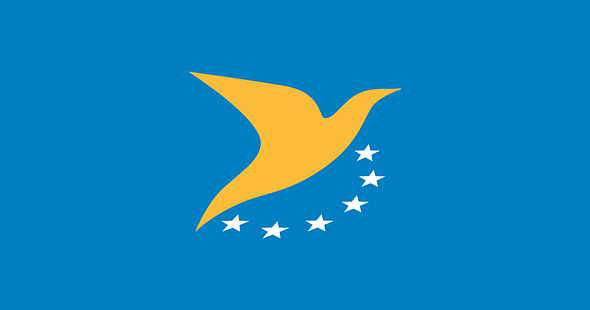
EASA’s uniform regulations cover both hobbyist and commercial drone operators. Small drones will now need to be registered so authorities can trace reckless flying back to the owners. There are three categories covering standard requirements for both operators and their drones:
- Low-risk or open-category drones will not require authorization but will be subject to strict operational limitations
- Medium-risk or specific-category drones will have to have authorization from the national aviation authority on the basis of a risk assessment
- High-risk or certified-category drones will need to follow aviation rules, and this will apply to future drone flights with passengers.
The low-risk category, which covers most hobbyist drones, is expected to be the most widely-used and will be managed through the CE marking process which ensures safety and environmental protection requirements are met. There are three subcategories covering where and how they can be flown:
- A1 – drones weighing less than 250g (0.55 lb) can be flown over people
- A2 – drones weighing more than 250g but less than 2kg (4.4 lbs) must be flown at least 50m (164ft) away from people
- A3 – drones weighing more than 2kg must be flown well away from people
Drones purchased before January 1, 2021, that don’t have a CE class identification label can be flown in the low-risk or open category for a grace period of two years. After January 1, 2023, they’ll be restricted to operating in a Limited category.
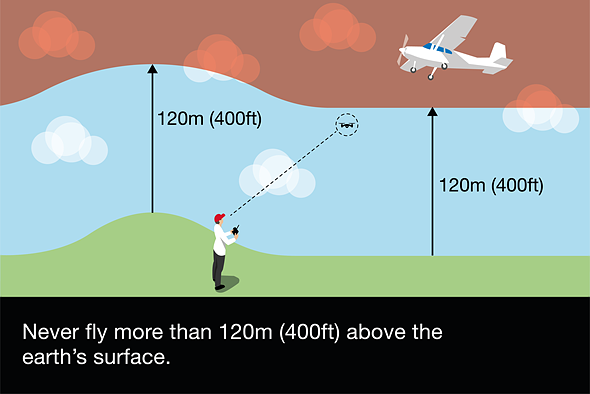
Drones purchased after January 1st of this year, with a CE class identification label, are subject to rules that EASA has outlined here. Drone flying now falls into five classes, from C0 to C4.
If all of this seems a bit overwhelming, DJI created a chart to make more sense of these new rules. SkyBounder also introduced a ‘Drone License Finder‘ tool to help people discover which category and/or subcategory applies to their specific operation.
Drone operators are required to register with their country of residence. While these uniform rules are now in effect, some countries may be quicker to adopt them than others. It’s important to double-check with local authorities or conduct research, for the time being, if there is any doubt about the legality of a flight.
Over its 245 year history, the United States Marine Corps has been deployed to regions that might seem like tropical paradises, were the Marines are seen not having to do the dirty job of fighting America’s enemies. While extreme heat and high humidity have been a foe of the Marine riflemen in many conflicts, so too have extreme cold and high winds, which is why U.S. Marines of the Marine Rotational Force Europe 21.1 (MRF-E), Marine Forces Europe and Africa recently took part in joint operations in northern Norway.

During the annual Reindeer II, a major Norwegian Army-led field exercises north of the Arctic Circle, the Marines and soldiers took part in bilateral arctic training, which included live-fire drills on snow and snow-covered ranges. According to Defence-Blog, the Marines and their Norwegian partners utilized snowshoes and cross-country skis, worked to keep ammunition dry and even dealt with issues like deploying weapons in powdery snow as well as facing cold and wet conditions. The exercises were led by Norwegian Army instructors.
“Norway offers challenging terrain and unique training opportunities to improve our cold-weather and mountain-warfare skills, enabling our force to fight and win in arctic conditions,” said Lt. Col. Ryan Gordinier, commander of 3rd Battalion, 6th Marine Regiment in advance of the bilateral exercise, which began on November 23. “The ‘Teufelhunden Battalion’ looks forward to continuing our historic relationship and strengthening our alliance with the Norwegian military.”
Gordinier added that Norway offers conditions that can’t be replicated at home stations back in the continental United States and said that the deployment provided the Marines with experience climbing up and down mountains, or dealing with extreme arctic temperatures.
This marked the first rotation of shorter MRF-E deployments, which were first announced by the Marine Corps in August 2020. Marine Rotational Force-Europe’s deployment synchronized with the Norwegian Armed Forces’ arctic training, which provided increased operational flexibility for the Marine Corps while it improved interoperability and strengthened defensive capabilities among partner forces. The Marines were able to learn valuable lessons in dealing with extreme arctic and mountainous terrain.
“One of the most important lessons we have learned is that we need a mutual understanding of what the different military terms mean, so that when an order is given, we can both act in the same way,” said Major General Lars S. Lervik, chief of the Norwegian Army, and Brigader Pål E. Berglund, commander of Brigade North, Norwegian Army according to Defence-Blog. “The level of integration allies have with the Norwegian Army today is very good, and I have never seen it this good before.”
The Marines may want to keep their cold-weather gear and camouflage at the ready. Marine Rotational Force-Europe 21.1 is expected to operate in Norway several times over the coming year, with a larger follow-on rotation scheduled in early 2021. The Marine Rotational Force plans to conduct various exercises alongside allied forces for continued interoperability and arctic training.
The United States Marines Corps is undergoing a transformation. In recent months the service has moved to deactivate all of its tank battalions, drastically reduce its artillery inventory, and field new amphibious vehicles to bring Marines from ship to shore. With a potential near-peer fight with China, the U.S. Marine Corps took a page from their past and recently reactivated the 1st and 2nd landing support battalions. However, that doesn’t mean that every fight could be under the tropical sun, which is why exercises such as Reindeer II remain so critical to keeping the Marines on their toes—even if that is in deep powdery snow.
Peter Suciu is a Michigan-based writer who has contributed to more than four dozen magazines, newspapers and websites. He is the author of several books on military headgear including A Gallery of Military Headdress, which is available on Amazon.com.
A Norwegian government official clarified last week that Norway’s procurement office will not stop doing business with firms on a United Nations Human Rights Council (UNHRC) blacklist. The rejection, coming from a country that has been at the forefront of anti-Israel boycott campaigns, is a significant test case for the relevance of the controversial blacklist.

In March 2016, the UNHRC passed a resolution calling for the creation of a database of companies operating in “Israeli settlements in the Occupied Palestinian Territory … and in the occupied Syrian Golan.” High Commissioner for Human Rights Michelle Bachelet released the list in February 2020, naming 112 companies whose activities were said to raise “particular human rights concerns.” No such UN list exists for any other conflict zone around the world.
Most of the companies in question were listed because of generic business activities, such as using water and providing banking services. International law does not prohibit companies from doing business in disputed territories.
Norway has been at the forefront of the campaign to weaponize this list. Weeks after the list’s release, a consortium of four Norwegian universities cited the list as justification to exclude Egencia, a subsidiary of Expedia, from a contract bid to provide travel services. Two international trade unions subsequently urged the Government Pension Fund of Norway to divest from firms on the list. The fund has not publicly responded to the submission.
In a surprising turn, the director of the Norwegian Government Procurement Center now indicates his agency will not cut ties with blacklisted firms. The director said, “Our procurement law assessment is that we have neither the right nor the duty to reject Egencia from the competition as a result of the conditions discussed.”
This clarification comes after the boycott campaign’s initial flurry of activity in the Scandinavian country. In May 2017, Norway’s largest trade union called for a total boycott of Israel. In October 2019, Oslo became the sixth Norwegian municipality to ban West Bank settlement goods. However, in early 2019, Norway’s new government, seen as friendlier to Israel, announced that it found anti-Israel boycotts to be unhelpful. Then, in April 2020, the Norwegian parliament rejected a bill to require special labeling for Israeli products from the West Bank.
Norway’s Government Pension Fund has been at the center of this boycott debate. It is the world’s largest sovereign wealth fund, with over $1 trillion in assets, including 1.5 percent of the world’s stocks and shares, making it an attractive target for divestment activists.
The Norwegian fund currently excludes two Israeli companies, which has not gone unnoticed. Texas’ Pension Review Board announced in April 2019 that it would divest $72 million from the company overseeing the Norwegian blacklist.
Thus far, despite some minor divestments, the UNHRC blacklist has been an ineffective tool for anti-Israel boycott activists. The Government Procurement Center decision only affirms this to be true. In the United States, both the incoming administration and U.S. states with anti-boycott laws will likely continue to reject this list as well. Increasingly, the decision to ignore the list stems from an understanding that it is simply a tool to target Israelis, not a means of promoting human rights.
David May is a research analyst at the Foundation for Defense of Democracies (FDD), where Haley Weinischke is an intern. They both contribute to FDD’s Center on Economic and Financial Power(CEFP). For more analysis from the authors and CEFP, please subscribe HERE. Follow David and Haley on Twitter at @DavidSamuelMay and @HaleyWeinischke. Follow FDD on Twitter @FDD and @FDD_CEFP. FDD is a Washington, DC-based, nonpartisan research institute focusing on national security and foreign policy.
Laila Anita Bertheussen was accused of vandalizing her own house and car and of sending threatening letters in an effort to blame a theater company for breaching her privacy.
A Norwegian court on Friday sentenced the partner of a former minister to 20 months in prison after she was found guilty of endangering the country’s democracy by making up threats and vandalizing her own house and car in an attempt to show that the couple’s privacy had been invaded by a theater production.
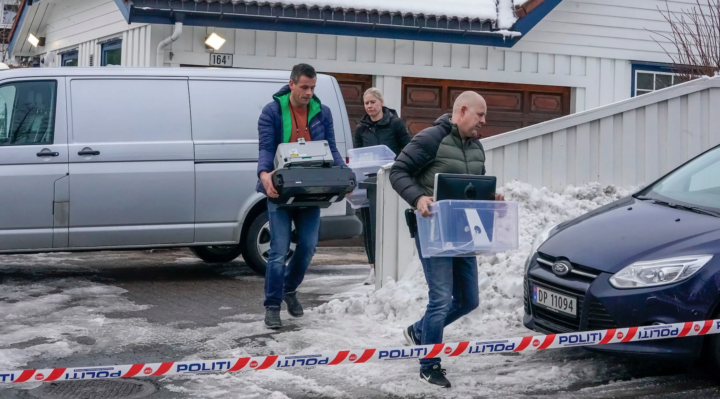
The defendant, Anita Laila Bertheussen, is the partner of the former justice minister Tor Mikkel Wara, of the right-wing Progress Party. She was found guilty of sending anonymous threats to Mr. Wara and to another minister, of daubing their own house and car with the word “racist” and a swastika, and later of setting the car on fire — all to prove her false assertion that the couple was under attack.
Eirin Eikefjord, a political editor who has covered the case for the daily Bergens Tidende, said, “It is an extraordinary case, some would say crazy, that has shaped conversations about what those who have power in Norway make of it.”
Ms. Bertheussen’s campaign began after a play in November 2018 at an Oslo theater. The play displayed footage of the house where she lived with Mr. Wara, along with images of the homes of other politicians whom the production accused of nurturing racist attitudes in Norway. The play, called “Ways of Seeing,” aimed to map “the networks that are interested in making Norway a more racist society,” according to a description on the theater’s website.


